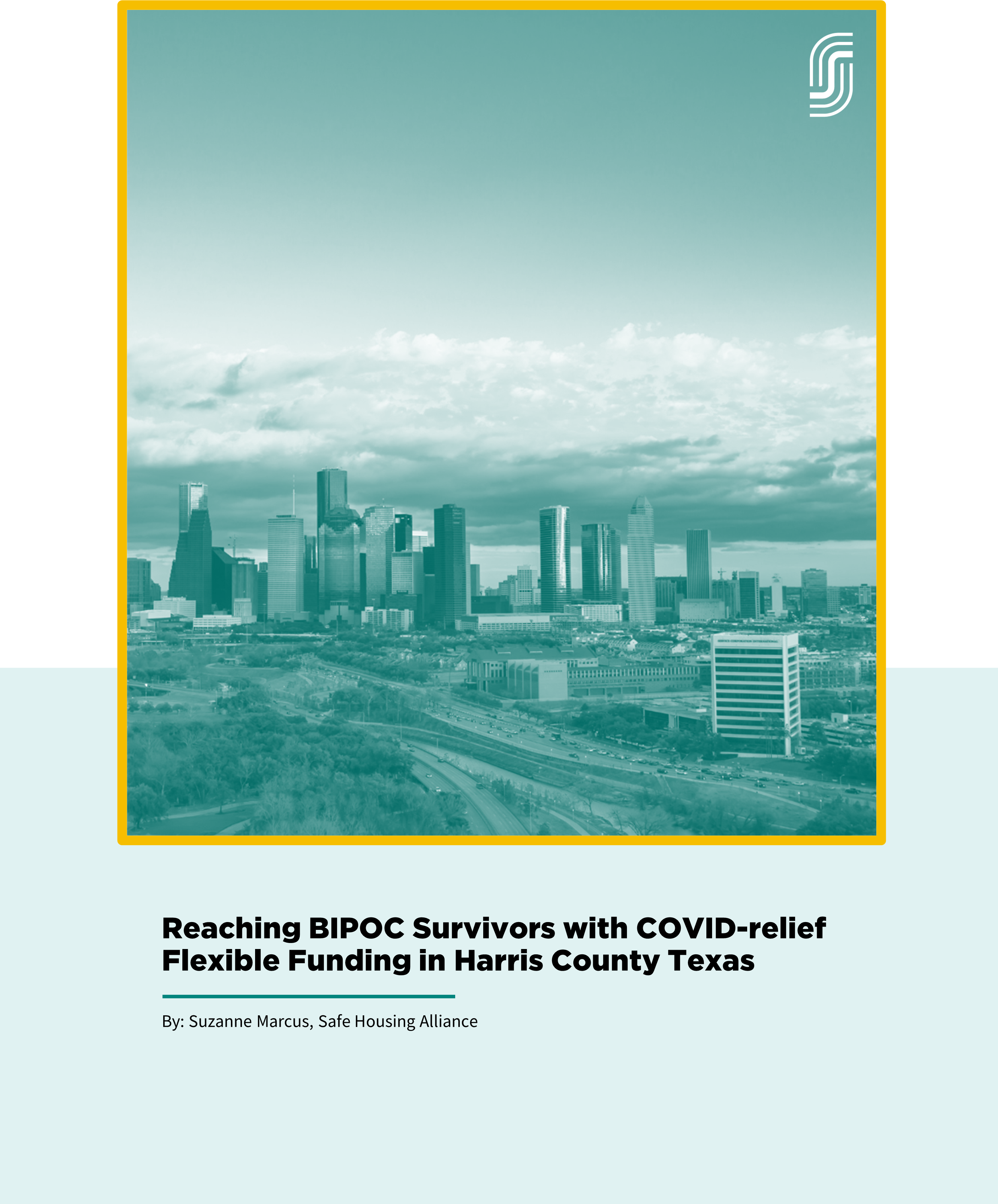This case study examines how the Harris County Domestic Violence Coordinating Council (HCDVCC) in Houston, Texas used a variety of COVID-19 relief funding sources to provide over three million dollars of flexible funding grants to survivors in their region. As the funding intermediary, HCDVCC centered the needs of BIPOC survivors by looking outside the mainstream victim service sector when selecting the fourteen flexible funding program grantees. This case study highlights HCDVCC’s strategy to get flexible funding to BIPOC survivors who were less likely to access COVID-19 relief funds and other resources from mainstream institutions or through channels outside their cultural community or natural support system, including survivors who were undocumented and those still living with the harm-doer. The capacity-building support required by some of the programs to successfully utilize these funds is outlined, as well as approaches the wider field can consider to minimize common funding barriers BIPOC organizations face to accessing flexible funding for the survivors they serve.

